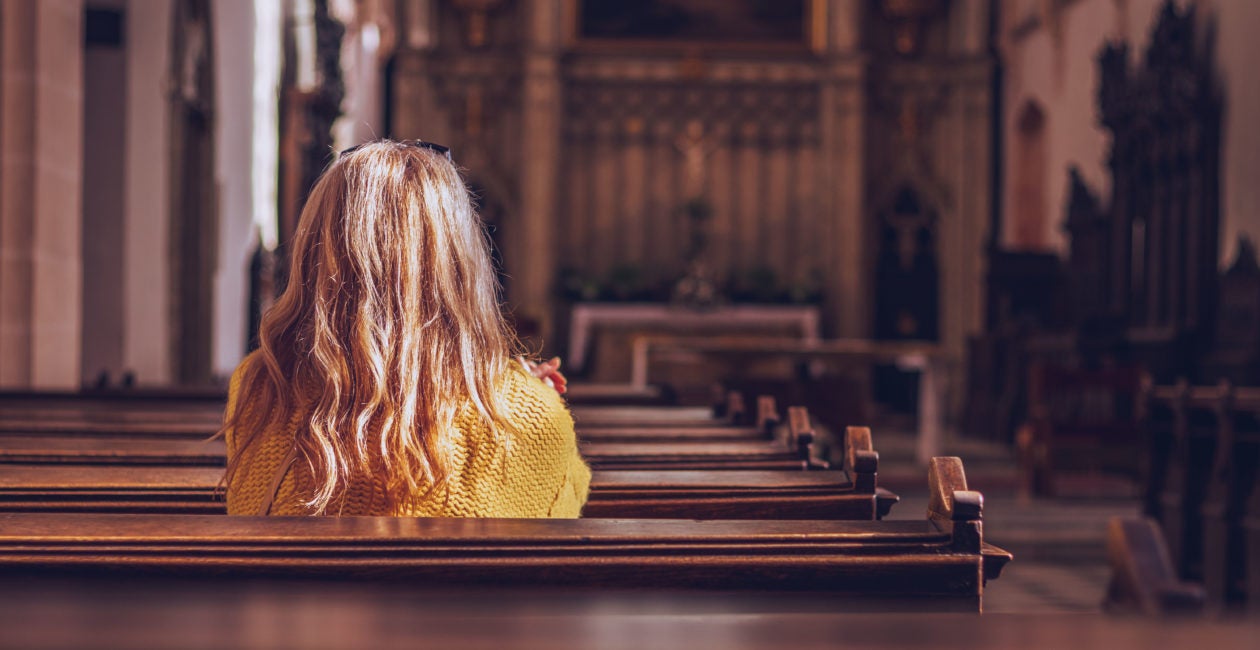The late historian and political philosopher Harry V. Jaffa noted the significance that the preamble to our Constitution concludes with the words “secure the Blessings of Liberty to ourselves and our Posterity.” This is how the drafters of our Constitution saw its purpose. Jaffa continues, saying, “a blessing is what is good in the eyes of God. It is a good whose possession … belongs properly only to those who deserve it.”
In light of this, let’s consider a just-released Wall Street Journal/NBC News poll that appeared under the headline “Americans Have Shifted Dramatically on What Values Matter Most.” “Patriotism, religion and having children rate lower among younger generations than they did two decades ago,” the headline continues.
Of all surveyed, 61% “cited patriotism as very important to them, down 9 percentage points from 1998, while 50% citied religion, down 12 points. Some 43% placed a high value on having children, down 16 points from 1998.” Among those ages 18-38, 42% cited patriotism as “very important”; less than one-third cited having children; and 30% cited “religion, belief in God.”
The founders of the country saw the nation’s existence, its faith, and its posterity as a package deal. It all went together. Now we have a young generation, our future, that dismisses the importance of all the elements of that package. What might this tell us about where we’re headed?
The operative questions are: Does the country have a future, a posterity, without children? And will there be children if there is no marriage and family? And will there be marriage and family if there is no religion and God?
Recent statistics provide pretty gloomy answers to these questions.
The Centers for Disease Control and Prevention reported the lowest birth rate in 32 years last year. It was the fourth consecutive year with a decline in the U.S. birth rate.
And the fertility rate, the number of births per 1,000 adult women, has been dropping every year and is well below the replacement rate—the fertility rate needed to keep the population from shrinking.
Regarding marriage, over the last half-century, the percentage of U.S. adults who are married has dropped 31%. According to the Pew Research Center, in 1960, 72% of adults in the U.S. were married. By 2016, this was down to 50%.
The decline in the percentage of Americans saying religion is “very important” in their life is identical to the decline in the percentage of married Americans. In 1960, 70% said religion was “very important,” and by 2018, this was down to 50%, a 20% decline.
Although Americans continue to feel free—87%, according to Gallup, are satisfied that they can freely live as they choose—a minority now sees this liberty as a blessing, in the sense that Jaffa explains the word in our Constitution. That is, “what is good in the eyes of God.”
As the sense of the importance of faith and religion diminishes, the values and behaviors that go with them—marriage and children—also diminish.
There are important practical implications on our posterity. Fewer children means an aging population. More retirees per everyone working means more pressure on the payroll tax, each dollar of which must be distributed to more and more retirees. The population over the age of 55 accounts for more than half our health care expenditures. As the percentage of the population over 55 increases, our health care expenditure burden will increase proportionately.
And, with the collapse of family, more elderly Americans will be living alone.
If you think this picture is gloomy, the good news is nothing is inevitable. We’re still free, and we can change course. Different discourse in the public square, policies consistent with seeing liberty as a “blessing,” can be advanced. But the starting point must be seeing something wrong with the status quo.
[italics and colored emphasis mine]
Star Parker is a columnist for The Daily Signal and president of the Center for Urban Renewal and Education.
COPYRIGHT 2019 CREATORS.COM
Monthly Focus | INDIA - For the first time, India entered the top 10 on the 2019 World Watch List. Research indicates that in 2018, more than 12,000 attacks on Christians were reported (many go unreported). This month, we invite you to pray with us for our Indian brothers and sisters.
STANDING STRONG THROUGH THE STORM - OpenDoorsUSA.org








No comments:
Post a Comment